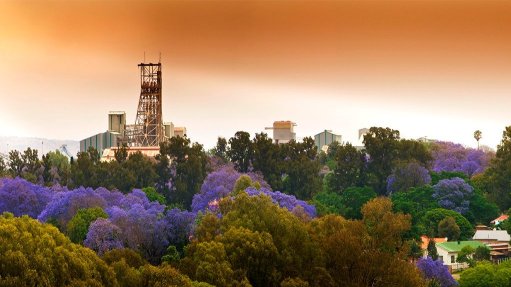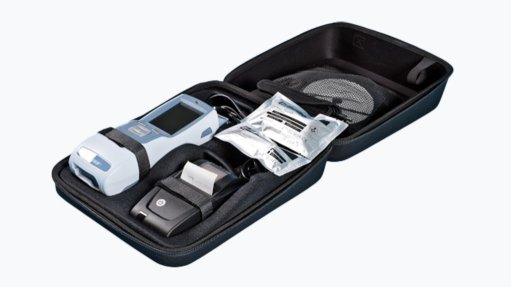Clean energy critical minerals can transform sub-Saharan Africa – IMF
Sub-Saharan Africa holds an estimated 30% of the world’s volume of proven critical mineral reserves and managing their use properly as part of the global transition to clean energy has the potential to transform the region, the International Monetary Fund (IMF) states in its ‘Regional Economic Outlook’ report.
The global transition to clean energy is set to further heighten demand for critical minerals. Between 2022 and 2050, demand for nickel will double, cobalt triple and lithium rise ten-fold, according to the International Energy Agency.
However, sub-Saharan Africa still focuses more on extraction than most other regions, the IMF report shows.
Developing local processing industries could significantly boost value addition, create higher-skilled jobs and increase tax revenues, thereby also supporting poverty reduction and sustainable development.
"By diversifying their economies and moving up the value chain, countries will become less exposed to volatile commodity prices, and more able to protect themselves against exchange rate volatility and foreign currency reserve pressures," says IMF deputy division chief Wenjie Chen, IMF senior economist Nico Valckx and IMF African Department economist Athene Laws.
"The region can generate greater windfalls by not only exporting raw materials but processing them as well. Raw bauxite, for example, fetches a modest $65/t, but when processed into aluminium, it commands a hefty $2 335/t, in end-2023 prices.
The researchers note, however, that unprocessed minerals are usually transported to Africa’s ports for export to other regions. This shows that local processing options for critical minerals are too often limited, they note.
Foreign direct investment can help provide the capital and expertise to develop mineral processing industries, but the absence of a substantial regional market makes local processing investments less enticing. Policymakers need to remedy this, the report authors say.
"A regional strategy built on cross-border collaboration and integration can create a larger, more attractive regional market for much-needed investment.
"A regional strategy is also essential to fully leverage the diversity of critical minerals, as clean energy technology requires combining multiple minerals scattered across the region," the authors advise.
Sub-Saharan Africa’s anticipated population boom, coupled with rapid urbanisation and industrialisation, will likely increase demand for renewable energy and expand the market for processed minerals.
The African Continental Free Trade Area can play a key role in reducing trade barriers and developing infrastructure, potentially uniting fragmented critical mineral markets for larger-scale operations and forming regional value chains that draw on both raw and processed mineral inputs.
Coordination can also start on a smaller scale, paving the way for larger regional hubs. For example, the Democratic Republic of Congo (DRC) and Zambia are collaborating on battery production for two- and three-wheeled electric vehicles popular in African markets.
Countries also need to collaborate on policies to create more favourable investment and business environments. Simplifying bureaucratic procedures and harmonising mining regulations across borders would foster a stable, predictable investment environment.
"Efforts to minimise the environmental impacts of mining and processing will help unlock new funding and investment opportunities in green finance. Strengthening the Africa Mining Vision, launched in 2009 by the African Union, could serve as a key framework for these regional efforts," the IMF recommends.
Further, complementing regional approaches, countries can undertake structural reforms to support domestic companies in mining and related processing sectors. They should approach the application of local content requirements, which mandate the use of local materials and labour, with caution.
"More broadly, many countries need to reevaluate their inward-looking policies, which can often result in inefficiencies, market distortions and increased costs. Export bans on raw materials, in particular, can backfire and cause production to fall," the report notes.
Additionally, countries can develop a supportive business environment by strengthening domestic financial markets and improving access to finance. New financial technology innovations offer exciting potential to help firms that serve the mining sector but face difficulties in securing traditional financing.
"Managing new resource windfalls responsibly also requires accountable and transparent institutions, allied with appropriate tax regimes and sound public financial management," the IMF said.
CURRENT PRODUCTION
"Sub-Saharan Africa is already at the centre of global critical mineral production. The DRC accounts for more than 70% of global cobalt output and approximately half the world’s proven reserves. South Africa, Gabon and Ghana collectively account for more than 60% of global manganese production.
"Zimbabwe, alongside the DRC and Mali, hold substantial but yet-to-be-explored lithium deposits. Other countries with significant critical mineral reserves include Guinea, Mozambique, South Africa and Zambia," the report notes.
With growing demand, proceeds from critical minerals are poised to rise significantly over the next two decades. Global revenues from the extraction of just four key minerals, namely copper, nickel, cobalt and lithium, are estimated to total $16-trillion over the next 25 years, in 2023 dollar terms.
Sub-Saharan Africa stands to reap more than 10% of these revenues, which could correspond to an increase in the region’s gross domestic product of 12% or more by 2050, the IMF states.
However, given the volatile nature of commodity prices and the unpredictability over the future direction of technological innovation, these estimates have a high degree of uncertainty, but the general direction is encouraging, the researchers say.
Article Enquiry
Email Article
Save Article
Feedback
To advertise email advertising@creamermedia.co.za or click here
Announcements
What's On
Subscribe to improve your user experience...
Option 1 (equivalent of R125 a month):
Receive a weekly copy of Creamer Media's Engineering News & Mining Weekly magazine
(print copy for those in South Africa and e-magazine for those outside of South Africa)
Receive daily email newsletters
Access to full search results
Access archive of magazine back copies
Access to Projects in Progress
Access to ONE Research Report of your choice in PDF format
Option 2 (equivalent of R375 a month):
All benefits from Option 1
PLUS
Access to Creamer Media's Research Channel Africa for ALL Research Reports, in PDF format, on various industrial and mining sectors
including Electricity; Water; Energy Transition; Hydrogen; Roads, Rail and Ports; Coal; Gold; Platinum; Battery Metals; etc.
Already a subscriber?
Forgotten your password?
Receive weekly copy of Creamer Media's Engineering News & Mining Weekly magazine (print copy for those in South Africa and e-magazine for those outside of South Africa)
➕
Recieve daily email newsletters
➕
Access to full search results
➕
Access archive of magazine back copies
➕
Access to Projects in Progress
➕
Access to ONE Research Report of your choice in PDF format
RESEARCH CHANNEL AFRICA
R4500 (equivalent of R375 a month)
SUBSCRIBEAll benefits from Option 1
➕
Access to Creamer Media's Research Channel Africa for ALL Research Reports on various industrial and mining sectors, in PDF format, including on:
Electricity
➕
Water
➕
Energy Transition
➕
Hydrogen
➕
Roads, Rail and Ports
➕
Coal
➕
Gold
➕
Platinum
➕
Battery Metals
➕
etc.
Receive all benefits from Option 1 or Option 2 delivered to numerous people at your company
➕
Multiple User names and Passwords for simultaneous log-ins
➕
Intranet integration access to all in your organisation


















